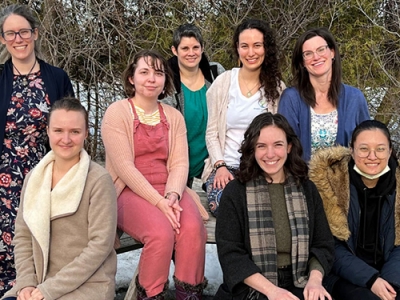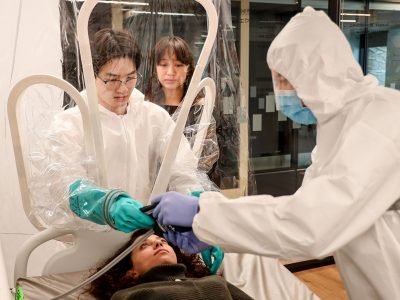By Ahmed Minhas
Photos by Terence Ho
For Daniel Knight, amyotrophic lateral sclerosis (ALS) research is personal. When he was 19, Knight lost his father to ALS. It was a devastating loss and a stark reminder that the disease runs in his family.
“I told my dad before he passed that I would be part of the solution,” he says.
“I didn’t know what that would look like at the time, but I knew I had to do something.”
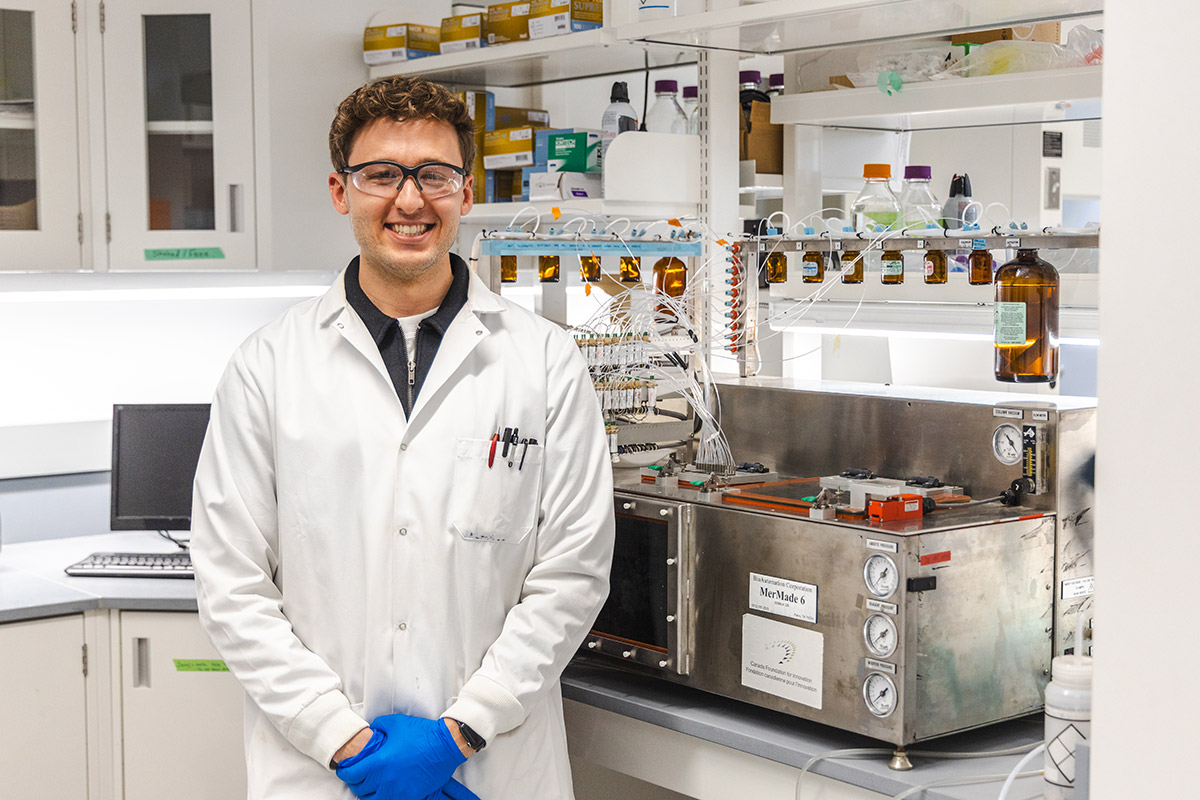
Carleton University PhD candidate Daniel Knight
While completing his undergraduate studies at Carleton University, Knight found a mentor in Maria DeRosa, Dean of Science. As he navigated his father’s passing, her compassion and support left a lasting impact — and ultimately helped shape the direction of his future.
Determined to keep working with DeRosa, Knight stayed at Carleton to pursue his PhD in Chemistry. Now, under her supervision, he’s leading groundbreaking research into a novel therapeutic approach for ALS.
His research focuses on designing aptamers to prevent a key protein from clumping, which forms part of a process strongly linked to ALS progression.
Backed by the ALS Canada-Brain Canada Discovery Grant, Knight’s research could help lay the foundation for a new treatment.
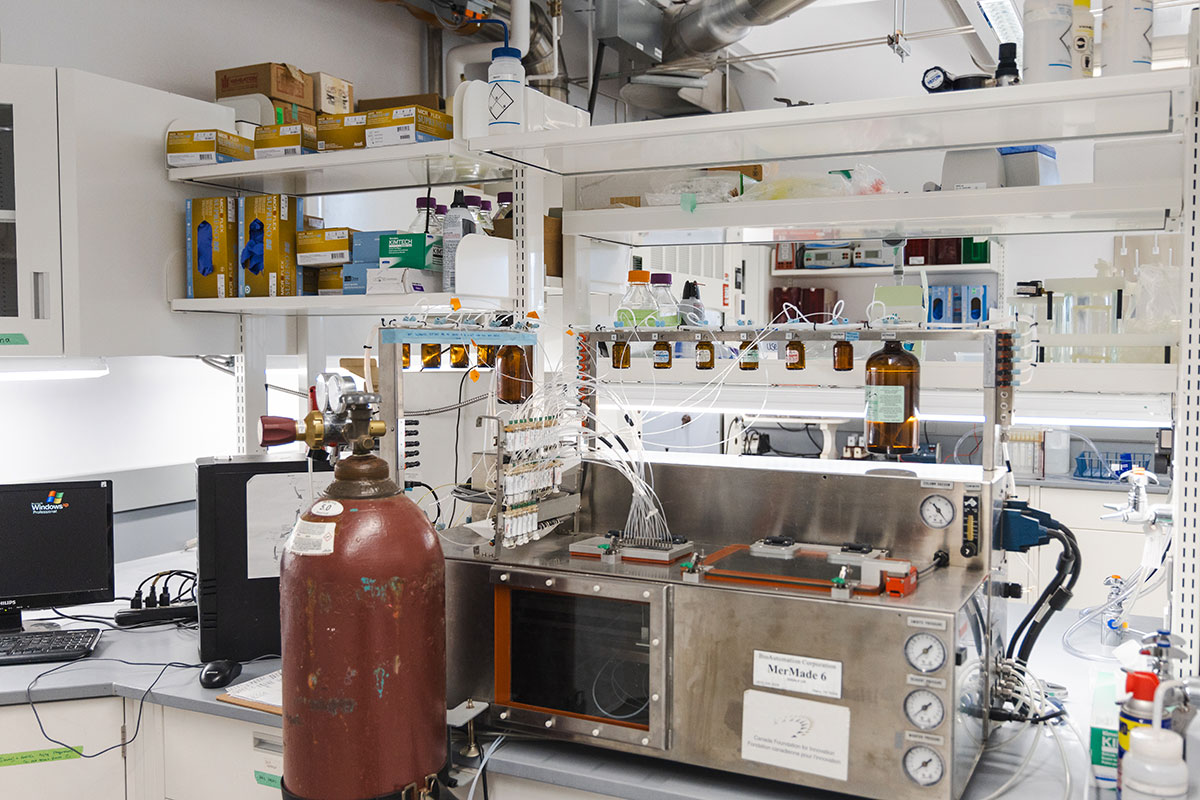
A Novel Approach to ALS Treatment
ALS is a progressive neurodegenerative disease that robs individuals of their ability to move, speak and breathe. There is no cure and existing treatments only slow progression by a matter of months.
Knight’s research targets TDP-43, a protein that forms toxic clumps in ALS patients, which is linked to nerve cell damage. His work aims to develop aptamers — short strands of synthetic DNA or RNA molecular “keys” — designed to stop this process.
“This type of approach has already shown promise in Parkinson’s research,” Knight explains.
“We’re applying those lessons to ALS in the hopes of finding a new pathway for treatment.”
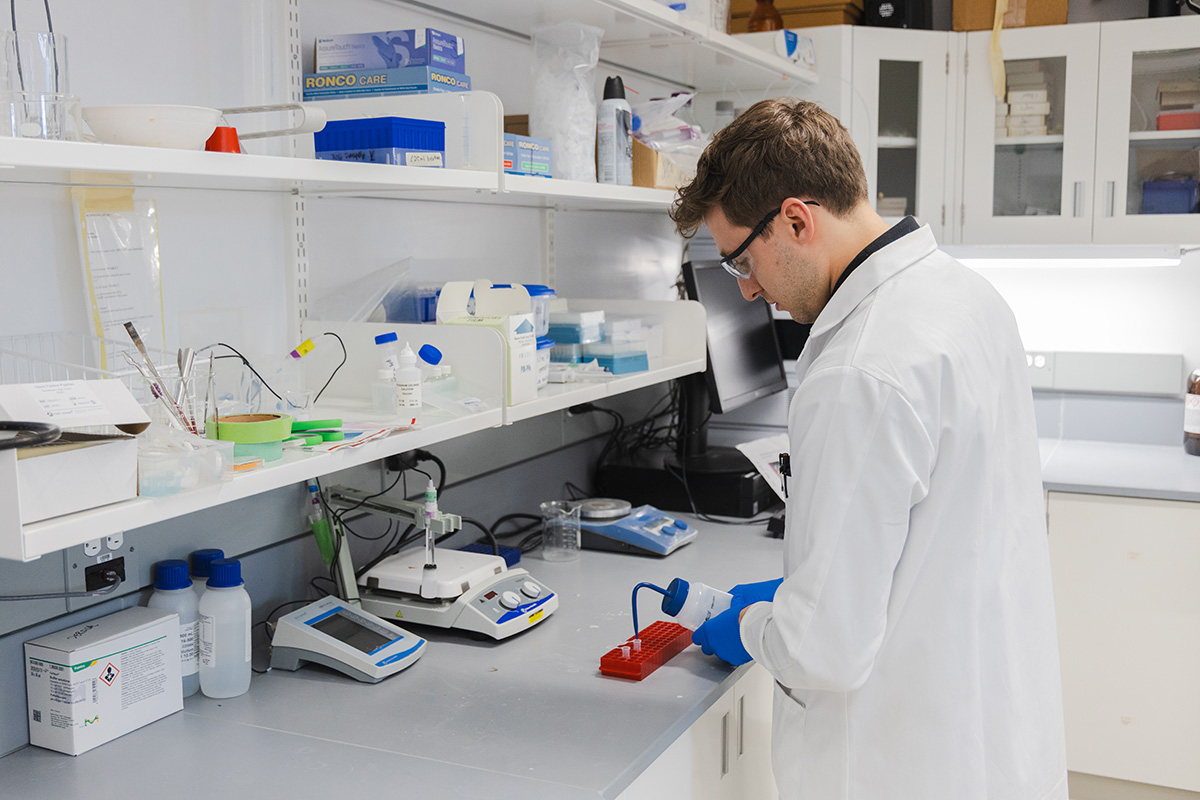
Securing a Major Research Grant Through Persistence
Unlike many research projects that begin with dedicated funding, Knight’s work started from scratch. Inspired by DeRosa’s work on Parkinson’s, he saw an opportunity to apply a similar approach to ALS. When he pitched the idea to DeRosa, there was no financial backing, but she recognized its potential and encouraged him to pursue it.
Knight and DeRosa applied for the ALS Canada-Brain Canada Discovery Grant in 2023, crafting a proposal outlining their research impact. It wasn’t enough. Their proposal was rejected. Instead of walking away, Knight saw it as an opportunity.
“The review process was tough, but the feedback was invaluable,” he says.
Knight immersed himself in the ALS research community. Kristiana Salmon, a clinical researcher who worked with his father, encouraged him to attend the ALS Canada Research Forum, where he met leading experts. Conversations with them helped him understand what funding committees wanted.
In 2024, he rewrote their proposal and reapplied. This time, they won.
For Knight, securing the grant — $120,000 over two years — was more than just a research milestone. ALS Canada supported his family while his father was sick. Now, they were investing in his work to fight the very disease that had shaped his life.
“It’s surreal,” he admits.
“Six years ago, ALS Canada was helping my family navigate my dad’s illness. Now, they’re funding my research to stop it.”
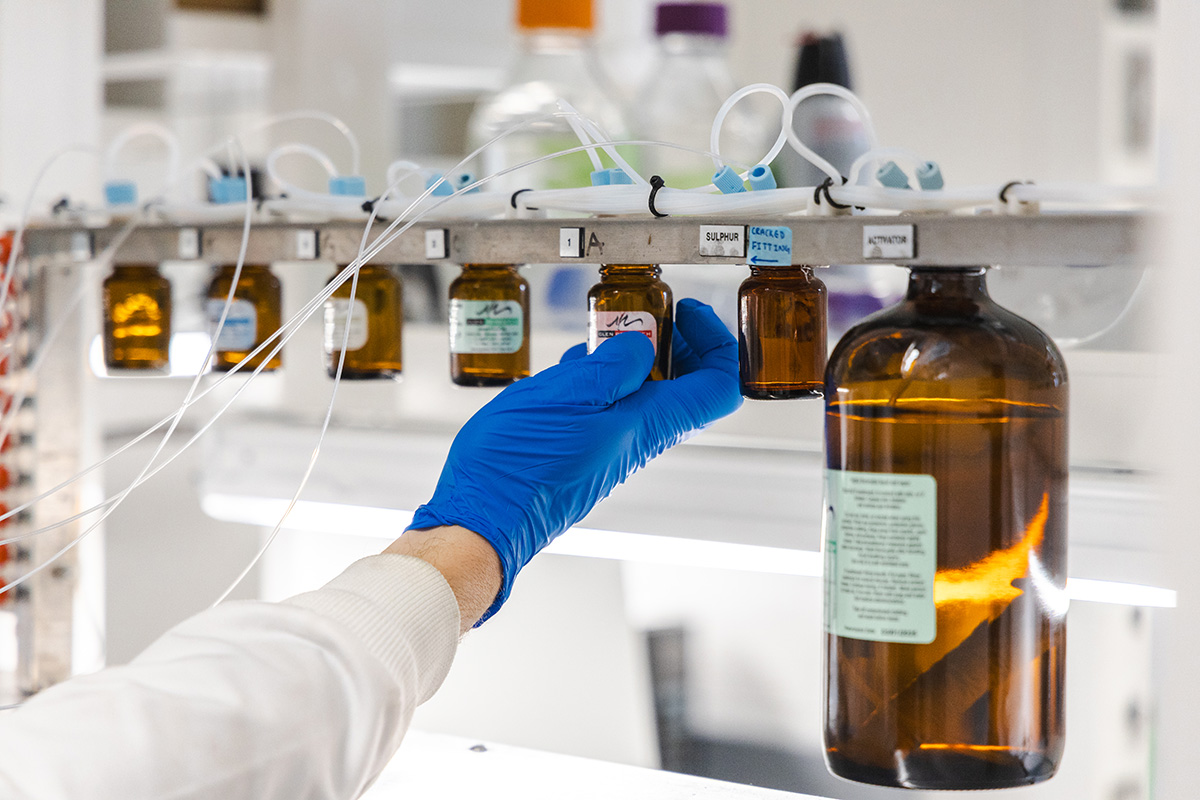
Leading Research as a PhD Student
Knight leads every aspect of his study, from conducting lab work to coordinating collaborations and moving the project forward.
He’s working closely with James Shorter, an expert in ALS-related protein aggregation, at the Perelman School of Medicine at the University of Pennsylvania, to test his designs.
“There’s definitely pressure,” Knight says.
“I remind myself that every experiment brings us closer to answers. That’s what keeps me going.”
With funding secured, Knight is focused on refining his aptamer candidates. Initial results are expected later this year, with further biological testing planned in the next phase.
Though he knows a cure won’t come overnight, he hopes his work fuels the growing momentum in ALS research.
“The field has come so far in the last decade,” he says. “Health Canada just approved the first-ever gene targeting therapy for ALS, which is incredible progress. We need to keep pushing forward.”
While deeply personal, Knight’s research is also about the bigger picture.
“This disease affects more people than many realize,” he says. “The more we talk about it and the more funding we secure, the closer we get to real solutions.”
His goal is to advance the search for answers.
“I don’t know exactly where my career will take me,” says Knight.
“I want to make an impact; whether in research, biotech or advocacy. I made a promise to be part of the solution and that’s what I intend to do.”
Knight’s determination shows how passion-driven science at Carleton can change lives.
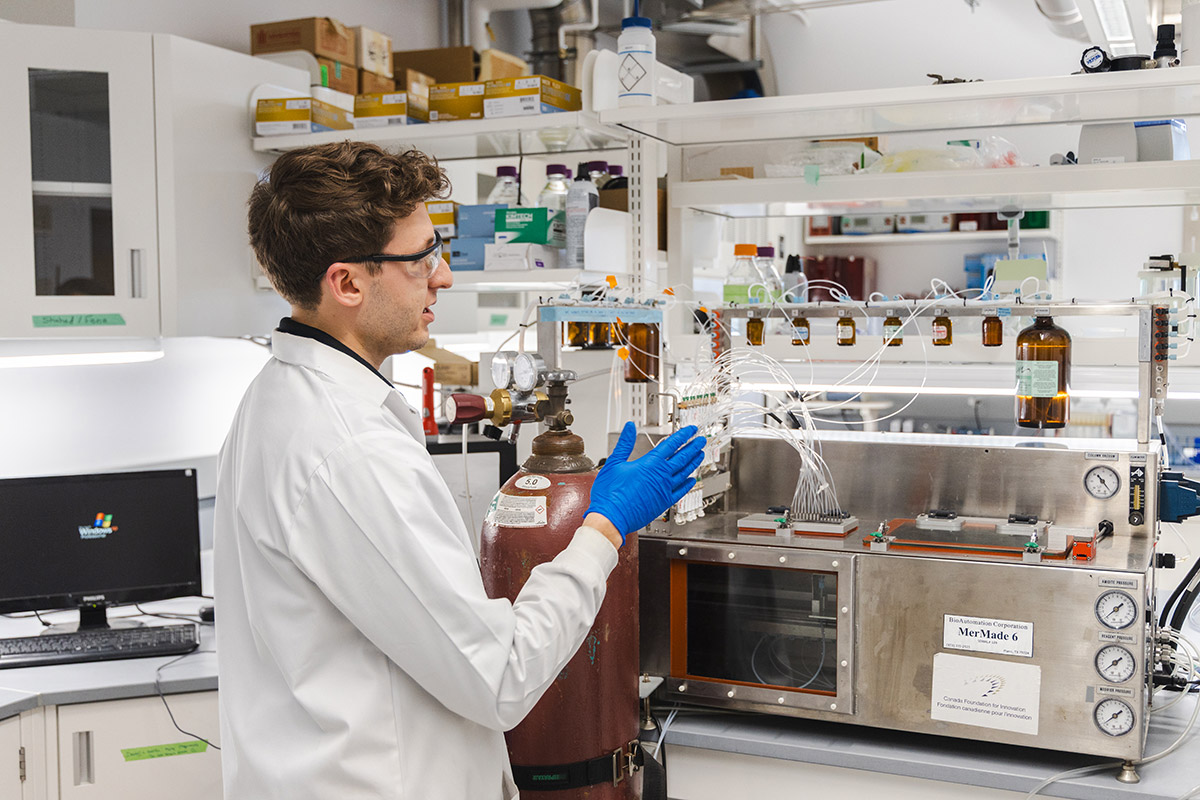
Monday, April 14, 2025 in Faculty of Science, Health, Research
Share: Twitter, Facebook
